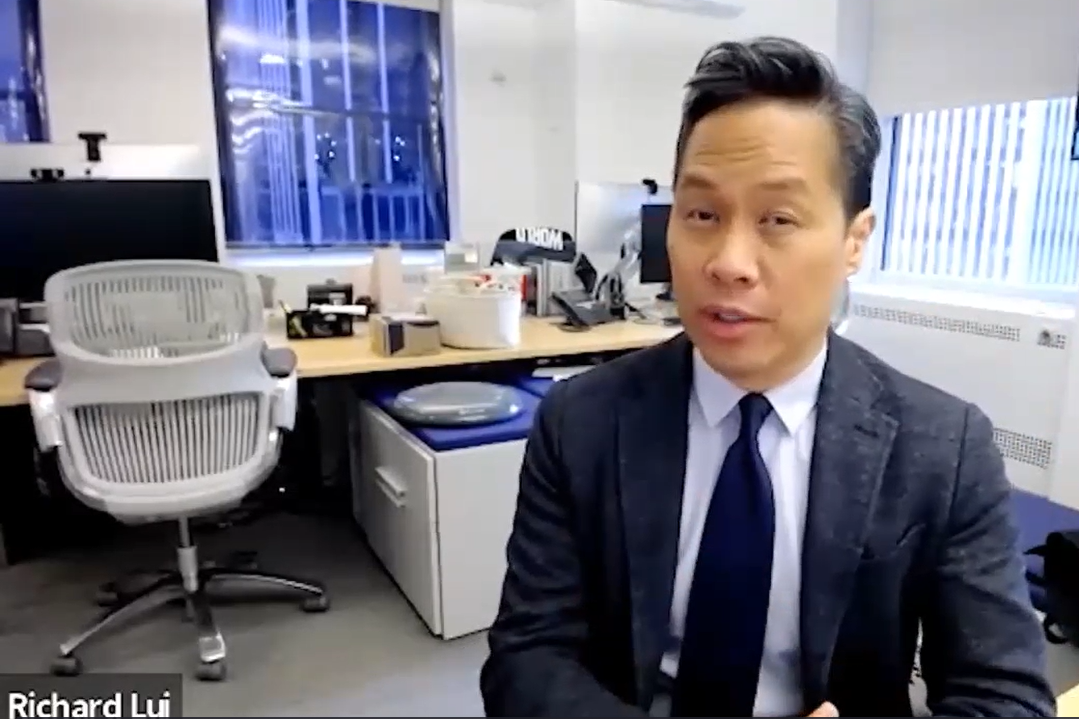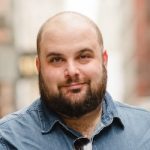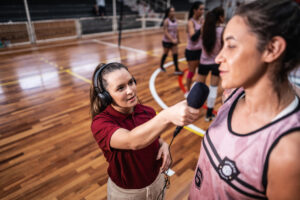‘Claim your power’: How AAPI communicators find strength through storytelling
AAPI communications leaders spoke about empowering the next generation to share their stories and lived experiences.

To kick off Asian American and Pacific Islander Heritage Month, The Museum of Public Relations hosted a virtual event that celebrated the work and lived experiences of AAPI communicators with a keynote and panel discussions with AAPI leaders and students in the industry.
MSNBC anchor and civil rights reporter Richard Lui kicked off the program in conversation with Bey-Ling Sha, Dean, College of Communications at California State University, Fullerton. Lui spoke about being the first Asian-American man to anchor a national daily news broadcast in the U.S.
“I can probably count on less than one hand the number of folks that are Asian-American, male, and anchoring on a national level,” Lui said. “And that’s a problem. I’m not conflicted with the idea of it. I’m conflicted with the issues around it.”
Sha mentioned that AAPI heritage month is an opportunity for members of this intersectional community to share their cultures and create space for allies to learn about those cultures too. She asked Lui why there are sometimes important lived experiences and stories from the AAPI community that go unshared.
“Not wanting to talk about these stories might be for various reasons,” Lui replied. “You might be afraid, humble, you might not have the tools. All of these things are dynamic and exist in our community, just like many other communities. On the flip side, do you celebrate in your community and in your family speaking out? Do you celebrate speaking up for the truth? Do you celebrate collegiality in that expression?”
Lui’s words framed the subsequent panel discussions, led by Bill Imada, chief connectivity officer at IW Group. Imada talked about the importance of telling stories, histories and lived experiences. Because two-thirds of AAPI populations are born outside of the U.S., they may not be able to tell their own stories due to a language barrier. “Now is the time for us to broaden those conversations to others,” he said.
The panels, which included several members of Imada’s Voices for AAPI group, had thoughts on how to get there.
Recognize sharing your story as claiming your power
Imada asked panelists what advice he would give to those who feel it’s not in their DNA to be forthright about sharing their stories and lived experiences.
“I try to think about things more transformationally than transactionally,” said Soon Mee Kim, Global Diversity, Equity & Inclusion leader for Omnicom PR Group. She explained that she was raised being silenced, and eventually reached a point where she didn’t want to endure anymore.
“The people coming behind me should not have to endure because I didn’t speak up,” she said. “Claim yourself — you have the right to have your story heard and shared! Claim your power.”
“As Asian Americans and Pacific Islanders, sometimes we think about the people before us and our ancestors,” added Roela Santos, VP of Communications and Marketing, BAE Systems. “But also think that you’re honoring the people before you and their sacrifices by telling your story.”
Imada also brought back Liu’s point that AAPI people have difficult histories, histories of colonialism, histories of subjugation. How does that impact AAPI communicator’s ability to share those stories with others?
“Those are very emotional, very personal,” said Cynthia Sugiyama, head of communications for diverse segments, representation & inclusion at Wells Fargo. “To share those, you may have to have some level of vulnerability. And that may come easier for some than others. Sometime in the capturing of those stories we ourselves grow.”
“People have to be comfortable sharing their story in their own ways, even if it’s just taking a baby step (like retweeting) something they agree or align with,” added Jacqueline Liu, SVP at The Pollack Group and adjunct professor at University of Southern California. “Even if it’s starting a personal blog that no one but your family read… it’s OK to honor that you’re not there right now.”
Teach the value of different voices to younger generations
“Our Asian community didn’t (always) go into communications,” said John Onoda, principal, iQ 360, Inc. “Now they are. Our pipeline began, my read is, 20 years ago? To be looking at the senior ranks, it takes about 20 years of a career to get to the upper levels. And then you’ve got to show up. You’ve got to understand where our pipeline is compared to the other cohorts and compared to the mainstream.”
“A lot of us come from a culture where a lot of the communication is context, and that’s not the culture here,” Onoda continued. “One of the reasons our community isn’t top of mind is because they won’t go on camera, they won’t talk. If everyone on this call would help train them, help them tell their story, we’d be more mainstream.”
“My advice to young people is that being different is adding value,” said JenniferJae Pi’ilani Requiro, vice president ofDEI at AEG. “Whether you’re a communicator or you’re in business, know that you should stand strong. Your perspective being different will add value to the conversation. Be really clear who you are as you’re sharing those thoughts.”
“Many years ago, I was a student assigned to do a family history project, and you couldn’t imagine how hard it was to pull histories out of my family members,” added Jackie Liu. She spoke to how difficult it often is for members of the AAPI community to ask for their stories from family members and tell them, because “they aren’t part of a shared narrative that everyone can understand. It’s too different. It’s too other.”
At USC, Liu said she teaches her students the importance of prioritizing their visibility, voice and value — emphasizing how they work together as a strategic, long-term process that includes things like salary transparency.
“Continue to be generous,” she said. “Be generous with your time, mentoring the next generation. But be generous with your energy, too. It’s OK to share your stories and talk. You aren’t being different and alienating anybody.”







